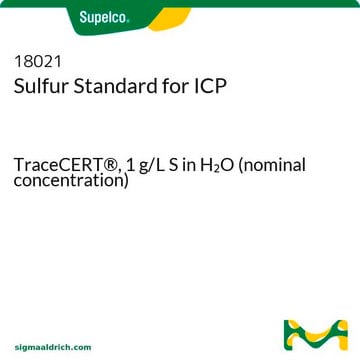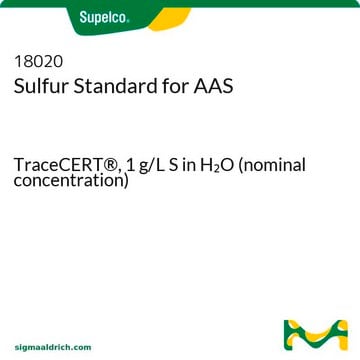IRMM644
Sulfur-32S solution
IRMM®, certified reference material, Spike Isotopic Reference Material
About This Item
Recommended Products
grade
certified reference material
Agency
IRMM®
isotopic purity
32S
manufacturer/tradename
JRC
concentration
326.28 μmol/kg±0.80 μmol/kg 32S in 3.2 M HNO3
application(s)
general analytical
format
single component solution
mass shift
depleted
SMILES string
[32S]
InChI
1S/S/i1+0
InChI key
NINIDFKCEFEMDL-IGMARMGPSA-N
Looking for similar products? Visit Product Comparison Guide
Analysis Note
IRMM644
Legal Information
Signal Word
Danger
Hazard Statements
Precautionary Statements
Hazard Classifications
Acute Tox. 4 Inhalation - Eye Dam. 1 - Met. Corr. 1 - Skin Corr. 1B
Supplementary Hazards
Storage Class Code
8A - Combustible corrosive hazardous materials
WGK
WGK 1
Choose from one of the most recent versions:
Certificates of Analysis (COA)
Sorry, we don't have COAs for this product available online at this time.
If you need assistance, please contact Customer Support.
Already Own This Product?
Find documentation for the products that you have recently purchased in the Document Library.
Our team of scientists has experience in all areas of research including Life Science, Material Science, Chemical Synthesis, Chromatography, Analytical and many others.
Contact Technical Service







